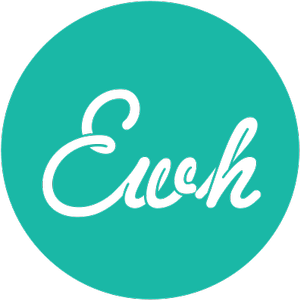
How to Build an Author Platform as a Picture Book Writer
When we think about writing picture books, we usually focus first on craft: developing characters, honing language, creating page-turns, building heart and humor. But once you’ve polished your manuscript and are ready to submit—or publish—it’s important to remember that editors, agents, and readers alike are interested not just in your book, but in you. That’s where your author platform comes in.
Think of your platform as your professional presence: the ways people find you, know you, and trust you as a creator. It’s not about becoming “Instagram famous” or chasing followers. It’s about building genuine, meaningful connections and showing that you have an audience (or the ability to reach one).
Here’s how to start building your platform as a picture book writer—even you’ve yet to be published—without feeling overwhelmed:
1. Start with Your Home Base: A Professional Website
The first thing a prospective agent or editor will do is Google you, and it’s important that what they find reflects you professionally. Having your own website is the best way to do this. It doesn’t have to be fancy or expensive, but it should clearly share who you are, what you write, and how people can contact you.
Your website should include:
- A brief bio (professional, but warm and inviting)
- A professional headshot
- A list of your books (or references to your “works in progress,” if you’re pre-published)
- Links to social media, if you use it
- A link to your blog, if you have one
- A way for people to contact you (a simple form or email link)
Remember, your website is often your first impression. Keep it friendly, accessible, and focused on your readers. If you’re pre-published, even a simple one-page site with your photo and bio is better than nothing.
2. Choose Social Media Thoughtfully
You don’t need to be everywhere. Pick one or two platforms that you enjoy—and where your audience, colleagues, and publishing professionals spend time.
Popular choices for picture book creators include:
Instagram: Visual, community-driven, and a natural fit for picture book content
Facebook: Especially useful for participating in kidlit groups and events
Threads or Bluesky: Emerging options if you prefer quieter, community-driven spaces
TikTok: Good if you enjoy making videos and being playful with your content
Wherever you show up, be consistent, be yourself, and focus on giving value—sharing books you love, celebrating others, and offering encouragement and insight.
Equally, be mindful not to post anything that could harm your standing as a content creator for children. Avoid politics, rants, or anything of a sexual nature. You want to suggest to a prospective agent or publisher that you are professional, easy to work with, and that you take the job of writing for children seriously.
3. Build Community, Not Just Connections
An author platform isn’t about shouting into the void. It’s about building relationships—one genuine connection at a time.
- Comment on others’ posts.
- Celebrate your fellow writers’ successes.
- Join critique groups, professional organizations (like SCBWI), and online forums.
- Attend conferences and workshops—virtually or in person.
People remember kindness, authenticity, and generosity. Those qualities will do more to build your platform than any algorithm hack ever could.
4. Create and Share Content That Reflects Your Values
Whether it’s a blog, a newsletter, or just your social media posts, think about what you want to share with the world, especially with young readers or those who select books for them.
- Are you passionate about encouraging young readers?
- Do you want to lift up other diverse voices?
- Are you excited to share your journey toward publication?
- Do you have a special skill or interest, like gardening, cooking, art, or music?
- Can you share reviews and recommendations?
You don’t have to be “selling” all the time—in fact, it’s better if you aren’t. Share your passion, your knowledge, your process, and your heart.
5. Be Patient and Persistent
Building an author platform isn’t a sprint—it’s a long, slow, meaningful walk. And that’s a good thing. It grows as your writing grows. It evolves as your career evolves.
Consistency matters more than quantity. Authenticity matters more than viral reach. Trust that by showing up regularly, professionally, and warmly, you’re laying the foundation for a platform that will support your books—and your readers—for years to come.
